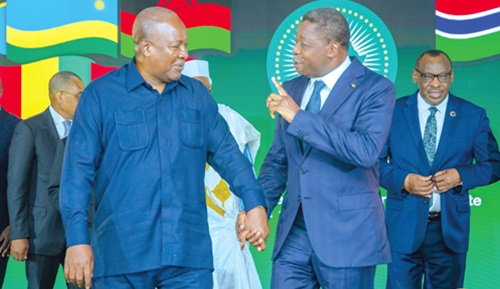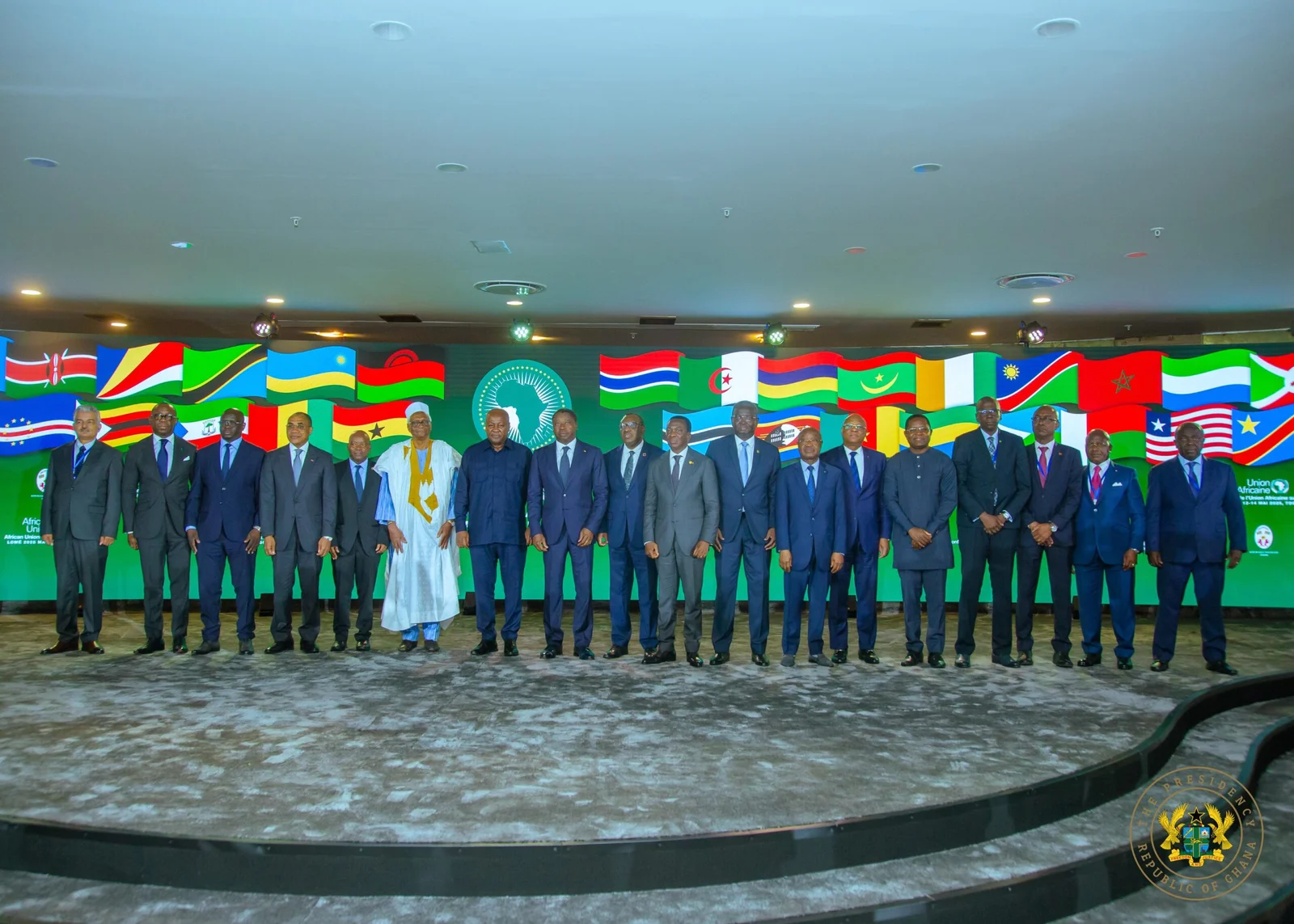President John Dramani Mahama has called for a united Africa to enable the continent address its escalating debt crisis. He says unsustainable borrowing risks undermining development gains and sovereignty of countries on the continent.
According to him, Africa’s debt burden has become a “paradox of need and vulnerability”, considering the fact that many countries are spending more on debt servicing than on health and education put together.
Delivering a keynote speech at the African Union (AU) High-Level Conference on Debt in Lomé, Togo, Monday, May 12, 2025, he stated that Africa can position itself to demand for reforms instead of begging for relief.
“Let us act not as debtors pleading for relief, but as partners demanding reform. Africa, united, can turn debt into opportunity,” he said.
He cited data from the International Monetary Fund (IMF) and the African Development Bank (AfDB), which indicate that 22 African nations were at high risk of debt distress, while debt-to-GDP ratio in sub-Saharan Africa had surged from 40 per cent in 2015, to over 60 per cent in 2025.
In 2024 alone, African governments spent $90 billion on debt repayments, nearly double the amount received in foreign aid.
“Debt can be a catalyst for transformation, but it can also be a source of fiscal fragility and lost sovereignty if not well managed,” he said.
Narrowing the discussion on Ghana’s situation, President Mahama revealed that despite the reduction of the country’s debt from 100 per cent to 30 per cent under the HIPC initiative in the early 2000s, Ghana’s debt to GDP had shot to 90.7 per cent by 2022 due to reckless borrowing and other external shocks including COVID-19 and global inflation.
Interest payments alone, he stated, took 47 per cent of the government’s revenue in 2023, describing Ghana’s US$5.4 billion debt restructuring deal in 2024 as a critical but “painful” step towards recovery.
The President outlined three key lessons from Ghana’s experience, emphasising the need for timely creditor engagement to prevent deeper crises, aligning multilateral support with domestic priorities, and ensuring debt sustainability through strong governance rather than just focusing on ratios.
Continental strategy
President Mahama also proposed a three-pillar continental strategy to tackle the debt challenge.
First, he stressed the importance of transparency, noting that less than 40 per cent of African nations published detailed debt reports.
Second, the President advocated productive borrowing, urging African countries to focus on high-impact sectors such as agriculture, renewable energy and digital infrastructure.
Third, he called for global financial reforms, demanding fairer credit ratings and expanded roles for African institutions such as the AfDB and Afreximbank.
The President then urged African leaders to explore innovative solutions such as debt-for-climate swap, modelled after Barbados, to fund green projects, as well as green and blue bonds for sustainable development.
He also emphasised the need for stronger tax systems and domestic capital markets to reduce the reliance on foreign loans.
President Mahama criticised the slow progress under the G20 Common Framework, noting that only three of the five African applicants had seen tangible debt relief and, therefore, called for faster and more equitable restructuring processes.
He rallied his colleagues to adopt a Common African Position for the 2025 G20 Summit, establish standardised debt transparency benchmarks across the AU, and fully operationalise the African Monetary Institute and the Pan-African Payment and Settlement System (PAPSS) to boost intra-African trade.














